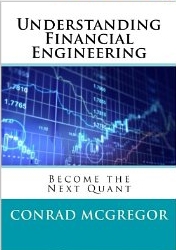If you looked at today’s S&P 500 chart, you would have thought there was another massive terrorist attack. Instead, we have riots in the streets of Greece….the 28th economy of a world, making up a massive .57% of world GDP. And what about Portugal you say? They are the 37th. I am not trying to make light of this, but a weaker Euro is not so bad. It allows the United States to inflate its way out of its debt problems, the strength in the dollar reduces the disparity between the Renminbi and the dollar, and goods from Europe (along with European vacations) are much cheaper.
The downside? Fear, plus the fact that US goods look much more expensive to European consumers. I was curious about this factor and its magnitude to US global corporations. According to S&P, Global sales accounted for 45.8% of sales in 2007. Europe accounted for 28.8% of those sales and the UK made up 4.6% of that. Therefore, about 24% comes from the European Union. The Euro has dropped by about 11% from the average trading level since the beginning of 2007, so with some rough math we might be able to say that 2.64% of S&P 500 earnings could be hurt by a fall in the Euro? On the flip side, European goods have become much cheaper.
So what actually happened today? The rumor floating around is that 1,000,000,000 shares of Procter & Gamble were sold by a Citigroup trader instead of 1,000,000. A billion instead of a million. The rather ridiculously common error known as a “fat-fingered” trade. You would think that risk monitoring would be put in place to stop such a heinous trade and it certainly does not raise your confidence in Citigroup. Citigroup denies the rumor.
The big news of the day was the massive bidding up of option volatility. The VIX spiked to an intraday high of 40%.
You might call me stubborn, but I do not see this as a systemic failure of the markets, but the onslaught of technical volatility. I call it “technical” volatility because the markets have become very much self-fulfilling in the last decade. Much of the daily trading is done by hedge funds which jump on rallies or declines, by hedgers who push the market in whatever direction it is going and by mass exodus due to the rather recent ability to quickly move money in 401-k’s and brokerage accounts electronically. When the market declines, the selling drives further declines and when the market rebounds, it rebounds faster.
I am not crawling into my bunker just yet, as a strong unemployment number and a good outcome to the European voting tomorrow could spur a quick rebound.






